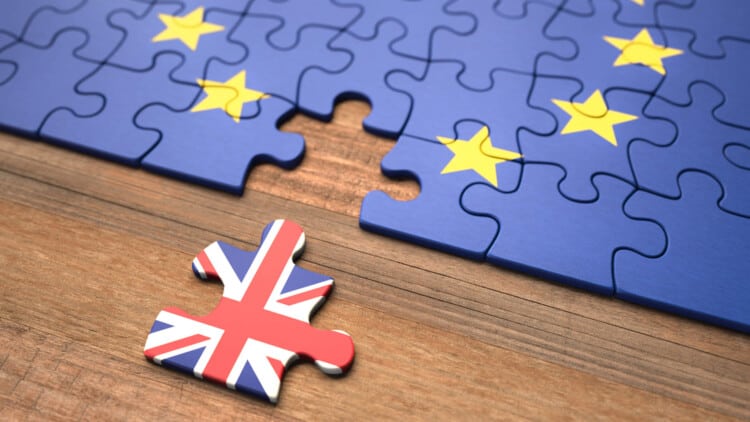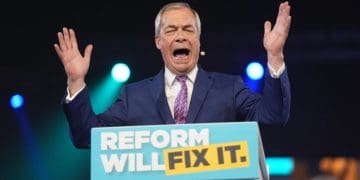According to recent analysis by Goldman Sachs, post-Brexit Britain has lagged significantly behind other advanced economies since the EU referendum in 2016, with economic growth falling short by 5% compared to comparable nations.
In a report titled “The Structural and Cyclical Costs of Brexit,” the Wall Street bank estimates that the UK economy has underperformed due to reduced trade, weaker business investment, and labor shortages resulting from decreased immigration from the EU. While the exact impact of Brexit is challenging to isolate from other concurrent events like the Covid-19 pandemic and the 2022 energy crisis, Goldman Sachs suggests that the true economic cost could range from 4% to 8% of real GDP.
Since the Brexit vote in 2016, UK goods trade has reportedly underperformed other advanced economies by approximately 15%, while business investment has fallen notably below pre-referendum levels. Additionally, changes in immigration patterns have seen a decline in EU migrants, which has been partially offset by less economically active non-EU migrants, primarily students.
Goldman Sachs highlights that the reduction in trade and investment aligns with expectations, but the shift in immigration patterns poses significant cyclical repercussions, particularly regarding labor market elasticity and inflation pressures.
While the UK government aims to leverage Brexit freedoms to stimulate economic growth, including the repeal of EU financial services law, Goldman Sachs emphasizes that the economic shortfall persists. UK real GDP per capita has only marginally increased since pre-Covid levels, standing at 4% above mid-2016 levels, compared to 8% for the euro zone and 15% for the US. Moreover, UK consumer prices have risen more sharply than in the US and euro zone, signaling heightened inflationary pressures.
Although new non-EU trade agreements could potentially offset Brexit costs, Goldman Sachs suggests that their impact may be modest. For instance, the UK-Australia free trade agreement is projected to boost GDP by only 0.08% annually, while the economic effects of a trade deal with Switzerland remain uncertain. Additionally, timelines for prospective agreements with major partners like the US and India are yet to be announced, leaving the UK facing continued economic challenges in the aftermath of Brexit.
Why not check out… Jeremy Hunt Optimistic Amidst Economic Recession: Plans for Tax Cuts in Spring Budget







